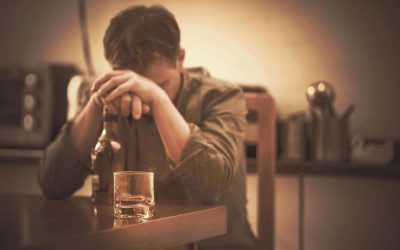It is recommended that alcohol not be consumed in the last four hours before bedtime. Even though alcohol may help you fall asleep, it interferes with the quality of your sleep. cant sleep without alcohol Next, you need to begin to break the link between alcohol and sleeping. The best way to do this is to leave longer and longer amounts of time between having a drink and bedtime.
Waking up at the same time – even if you’re still tired – will help you feel more tired at night, too. Incorporating stress management techniques into your daily routine can help calm your mind and prepare your body for sleep. Consider trying relaxation techniques such as deep breathing exercises, progressive muscle relaxation, or engaging in activities that promote mindfulness and meditation. These practices can help reduce stress levels and promote a sense of calm before bedtime. Researchers have noted a link between long-term alcohol abuse and chronic sleep problems. People can develop a tolerance for alcohol rather quickly, leading them to drink more before bed in order to initiate sleep.
Can Alcohol Cause Sleep Apnea?
There are various complementary therapies available to ensure you don’t have to switch trouble sleeping without alcohol to issues sleeping without medication. If this is the case, try to find some relaxing way to ease your mind when you go to bed. Some people also find journaling helps them to reduce feelings of anxiety. The key to success is sticking to your new routine as much as you can. If you think your problems with sleep might go beyond alcohol, then it’s worth talking to a medical professional. As with most habits, getting over a period of trouble sleeping without alcohol is all about making some changes to your routine.
Dry January: 8 Things That Can Happen Within Days of Quitting Alcohol – Business Insider
Dry January: 8 Things That Can Happen Within Days of Quitting Alcohol.
Posted: Mon, 13 Mar 2023 07:00:00 GMT [source]
Being CERTAIN that you’ll find a solution to a problem drastically increases your odds of doing so. This basic truth of the human mind applies just as much to alcohol withdrawal insomnia as anything else in life. A growing number of people have had success using kratom to reduce the symptoms of alcohol withdrawal, including insomnia. https://ecosoberhouse.com/ We all react differently to alcohol, though, so some people may need even more time than this. Research shows alcohol can impact your sleep even if you stop drinking six hours before bed. Good sleep hygiene will help you fall asleep faster and stay asleep longer, so you don’t need to have something before bed for sleep.
Understanding Sleep Hygiene
RISE can tell you the best time to do 20+ sleep hygiene habits at times that make them the most effective for you. RISE can also predict your circadian rhythm, so you can sync up your sleep times to match for an easier time falling asleep. If alcohol continues to disrupt your overall sleep quality, you may consider cutting it out entirely, or limiting your intake before bedtime.

There have been comparatively few studies of nonpharmacological sleep treatments in patients recovering from alcohol dependence. Greeff and Conradie131 assessed the benefits of PMR for improving subjective sleep quality in 22 male alcoholic inpatients who met DSM-III-R criteria for an insomnia disorder. Half of the participants received two weeks of daily relaxation training while the other half received no treatment. At post-treatment, the relaxation group reported better sleep quality than the control group on a 10-point rating scale. The study had several methodological limitations, including no screening for occult sleep disorders, poor outcome measure selection, and no active control group.
Alcohol and Insomnia: That Nightcap Might Keep You Up at Night
Scrolling through Instagram may feel relaxing, but it’s really keeping you from a good night’s sleep. Other methods of relaxation and stress relief may be helpful, such as meditation, exercise and finding time for meaningful hobbies. If anxious thoughts are keeping you up, try jotting down a to-do list before you doze off. That way, you can forget about what you have to do tomorrow until the morning actually comes. Meanwhile, the role of cannabis in promoting sleep remains uncertain, and its potential effects are still a topic of research. Generally, you should steer clear of over-the-counter options like melatonin and Benadryl.